“Given the chance, I would burn it to the ground” // Testimony from Hpa-An women prison
HPA-AN, KAYIN STATE // His eyes were those of a demon, red and sparkling. Totally wired, tired and probably on methamphetamines – they all lose their human minds this way … they are like wild beasts, roaring and screaming, even when communicating with each other.
Prison administration changed after the 2021 February 1st coup. The torture, humiliation and human rights abuses that Myanmar’s prisons are notorious for are overseen by an increasingly struggling military.
With record numbers of political prisoners even in the country’s long history of repression and civil war, dwindling numbers of military personnel are now in direct supervision of the prisons. Food, water and human rights are on short supply, but cruelty and torture proliferate in the absence of organized supervision, as soldiers holding power over prisoners are stretched thin, sometimes forcibly recruited, propped up on amphetamines to combat long hours and lack of resources.
When I was interrogated, the low ranks did the torture while a man they referred to as ‘captain’ gave the orders from behind the door.
Referred to as “Sayama Gyi” or Big Master / Boss Woman by the ‘captain’, Naw May organized safe houses across Kayin/Karen State for activists in the Civil disobedience movement on the run from the junta.
A church-going Catholic and restaurant manager in peacetime, Naw May was apprehended in October 2021. Military personnel surrounded the car as she, her husband and their ten-year-old daughter were making their way to pick up a frightened member of parliament who had requested Naw May’s assistance.
We were arrested on the bridge between Hpa-An and Thaton – they had information about us already, because they gathered around our car specifically.
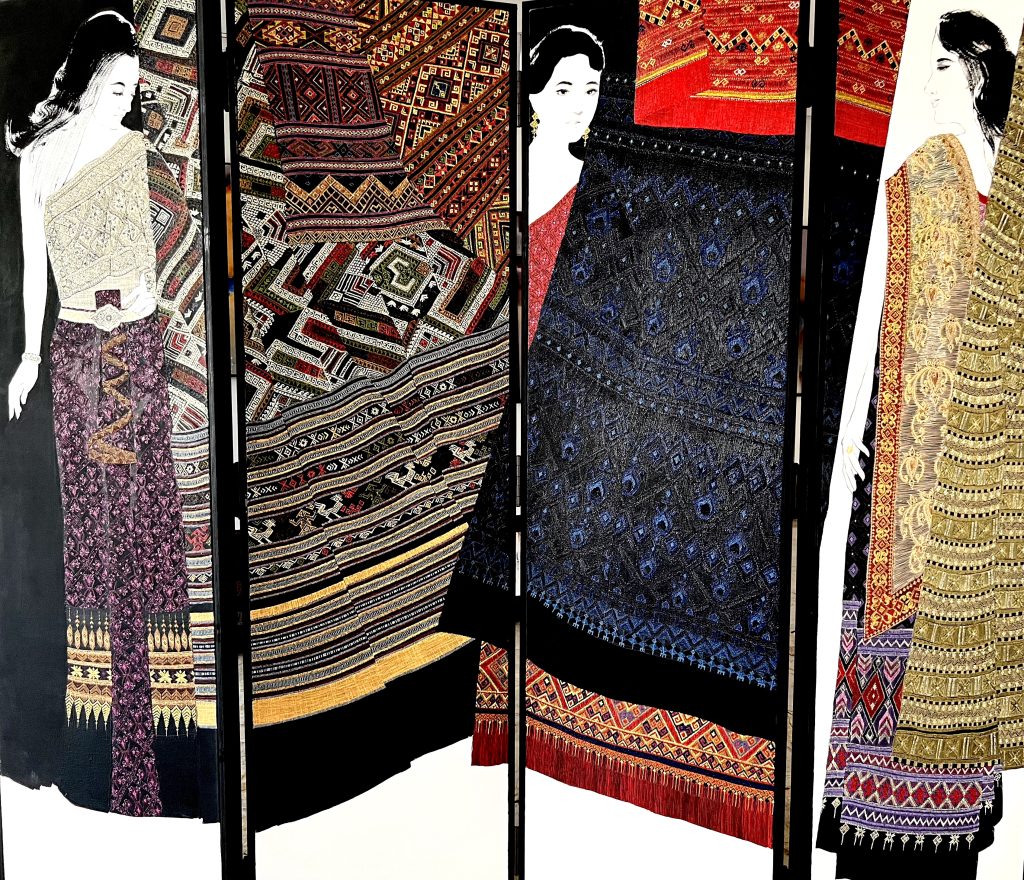
On the way to the police station, soldiers intervened in May’s attempts to communicate with her family. Amid the soldiers’ insults and rude words, fears for her daughter’s safety began to escalate due to the military’s well-known indiscriminate maltreatment of adults and children.
When the family arrived at the Hpa-An Central Police Station there was not a police officer in sight. Soldiers separated Naw May from her family and took her to an interrogation room. When she asked for assurance that her daughter was safe, the door of the room was left ajar, to the public area where the daughter was sitting.
It is common practice for the Myanmar military to confiscate civilians’ phones and to check them for content related to the CDM or the PDF.
They were checking my phone in front of me – everything was cleared off – but right at this moment my younger sister called and I responded fast, letting her know I had been arrested. The soldiers struck me in the face so many times I saw stars – and my little girl saw it all. She has been mute ever since.
Their daughter was sent away to the church, while Naw May and her husband were transferred to a military base within the town, and put in separate rooms of roughly ten square feet. For the ensuing three days Naw May was interrogated in the infamous “Hell Room”. She was shown maps and GPS locations, and asked repeatedly where the People’s Defence Forces (PDF) were hiding.
I told them I don’t know how to read maps.
At forty-one, May is strong and straight-forward.
I kept telling them that I am running a business in Myawaddy, and I need to be friendly with every customer, that’s it. They told me my husband indicated the locations anyway, but they still wouldn’t tell me where he was.
Naw May uses a prosthetic leg. She needed a transfemoral amputation in 2010 following a severe car accident. During the beatings she sustained in interrogation, her prosthetic leg was shattered, rendering basic movement extremely difficult.
They told me to get up, but I couldn’t. They kicked me, and snapped at me with a rubber band. As I was trying to gather my strength to get up, they attacked me with a steel pipe. At this point, I was certain I would be raped and murdered.
Naw May lost consciousness when the soldier inserted the steel pipe in her vagina.
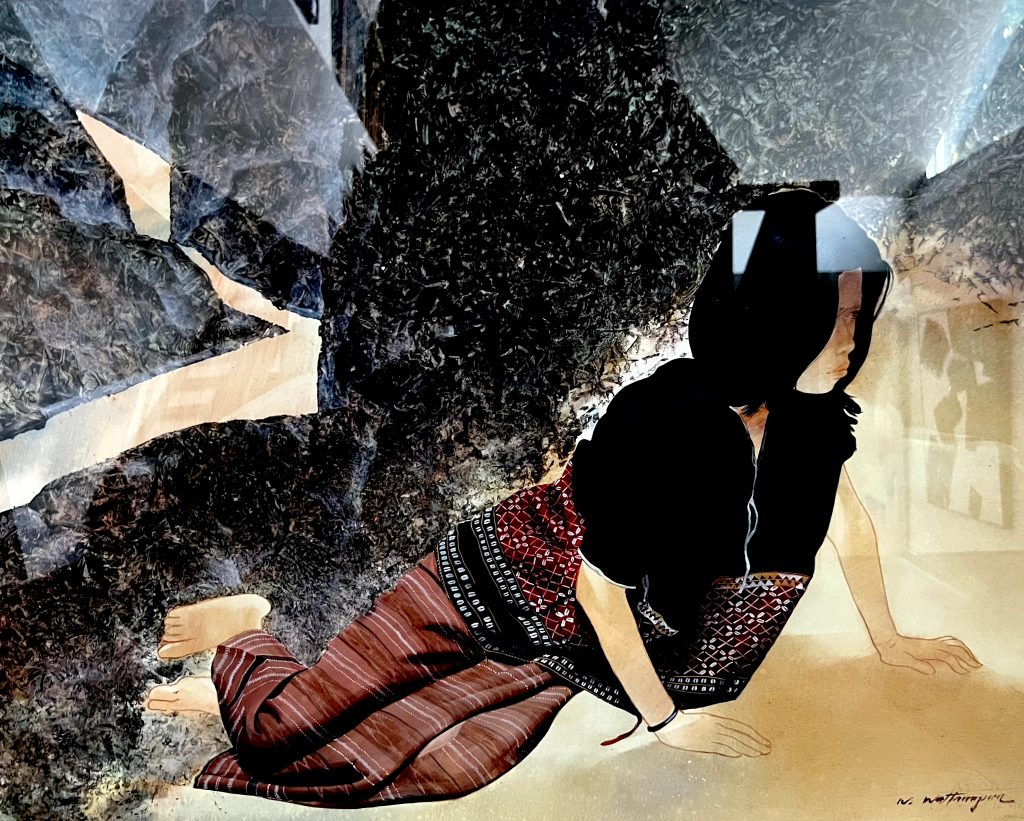
The next morning, Naw May and her husband were sent back to Hpa-An Central Police Station. May’s resolve had convinced the military that they were wrong about her involvement in the resistance network. Her Karen Christian community protected them when questioned about their activities.
Naw May was unable to accept the food she was offered due to the pain radiating through her. She had to rely on the kindness of the other five detainees – all being charged under Section 505A – for the pain medication she so desperately needed.
Section 505A is a new provision enacted by the junta, aimed at punishing any percived criticism of the coup and the military government with up to three years in jail.
After three days at the police station, May was taken to the courthouse, where she was introduced to the officer investigating her case. This was the first encounter with a police officer throughout her ordeal.
In court she asked to see a doctor, but was told the prison doctor was being moved.
Naw May received a two year sentence.
Pain.
…
After a year inside, Naw May’s untreated post-assault infection had become an abscess the size of a football.
I looked eight months pregnant. One political prisoner who was a doctor recommended some medicine. My friends on the outside tried to get it to me, but prison bosses confiscated it, because it was apparently illegal. Prison staff were selling the same medicines at a mark-up of forty per cent.
May was able to see her husband through glass every two weeks, but due to broken phones, the two were only able to communicate through physical gesture.
On October 19th, 2022, a warden brought me to the office with chains on my wrists and ankles. A paper was thrown onto the table in front of me with my husband’s name, my name and his time of death.
She was denied the chance to see her husband for the last time.
After this, I would challenge the staff, wanting to find out more. They blamed gout and arthritis. I found out from other male prisoners after their release how much my husband had suffered, being tortured and moved around constantly, with worsening health from being rained on quite often. He was also denied medical treatment. He was forty-three.
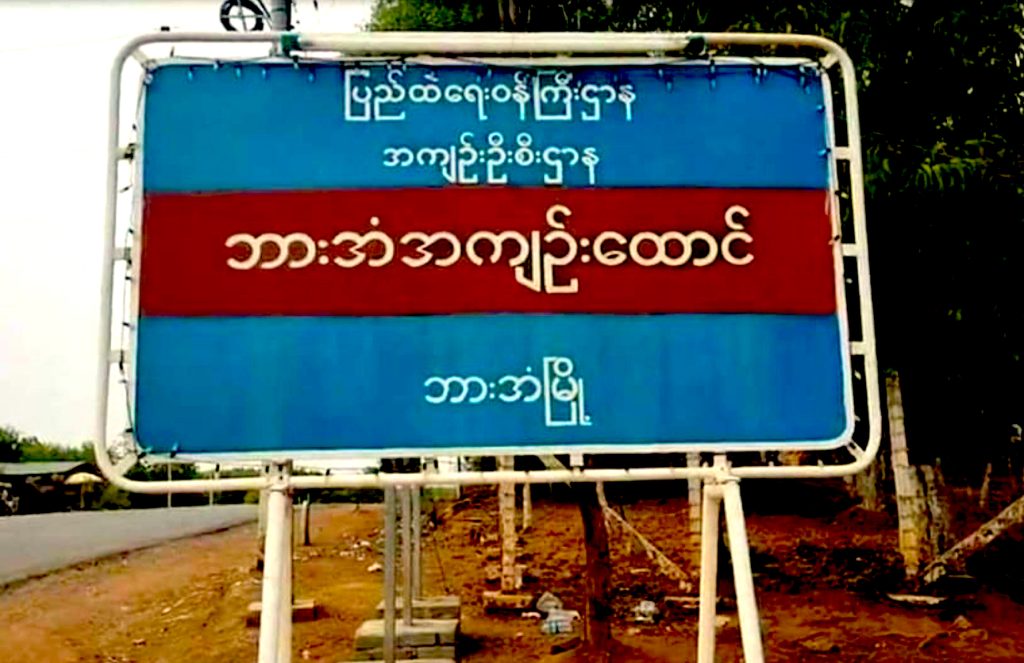
Naw May was one of 280 political prisoners in the Hpa-An prison, from a total of 400 in the general women’s population, with thirteen women staff charged with their welfare.
Despite many empty rooms, the women were overcrowded, with 100 people in rooms of sixty square feet. No distinction was made between political prisoners and the general population. Prisoners in the general population had more experience than their newer, political prisoner counterparts, with most established strategies for survival.
For Naw May, with her one leg, the bathroom was challenging. She had to stand on one leg during showers, and was unable to crouch over the squat toilets supplied to prisoners.
Some senior prisoners charged with drug dealing negotiated for her to be able to use the staff toilets, in western style. They put together 100,000 MMK for the privilege.
They were afraid I would break their precious toilet!
Despite her clarity, prayers to God and sense of will, Naw May’s health was declining. She would experience heavy bleeding every week, needing to change pads every thirty minutes. Prison staff would helpfully sell her the two packs she required daily at a considerable mark-up.
After fourteen months in Hpa-An Prison, she was finally taken into the public hospital to have a major operation to remove her uterus. Eleven days later she was returned to her cell, still in stitches.
There was a lot of forced labour … assignments for every prisoner. If you have money you can pay others to do your jobs for you, carrying buckets of water, or cleaning the rooms or the toilets. A lot of women got skin problems and other diseases from cleaning the toilet holes out with their bare hands – we didn’t have gloves. A young, twenty-year-old political prisoner volunteered to do my tasks once a week.
None of us had access to warm clothing, just one blanket per person, so those with the means would try to bribe prison staff to buy warm clothing. Something that cost 1000 to 2000 kyats outside would cost 20,000 kyats inside.
In one cell there were thirteen mums with babies or pregnant women, and twenty others including an eighty-year old woman who couldn’t see or walk, yet who had also been charged under Section 505A.
To give birth, pregnant women were allowed out to the hospital for one night, and brought back the next day with their newborns.
Naw May and our interpreter clasp hands, wipe tears, commiserate.
Living in Thailand with two children and a nephew, depending on assistance from a Thai foundation, Naw May wants the National Unity Government (NUG), and the foreign authorities of the lands people have fled to, to know that nobody wants to be ‘illegal’.
Our falling tears are not fake, it’s coming from our hearts, please see us.
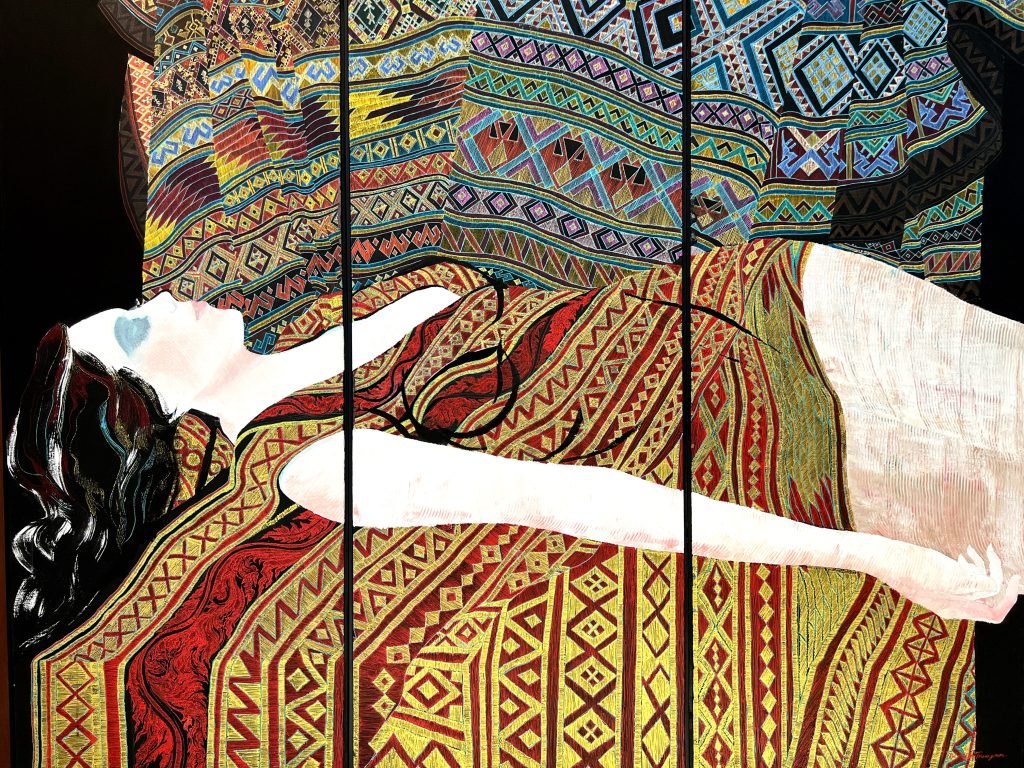
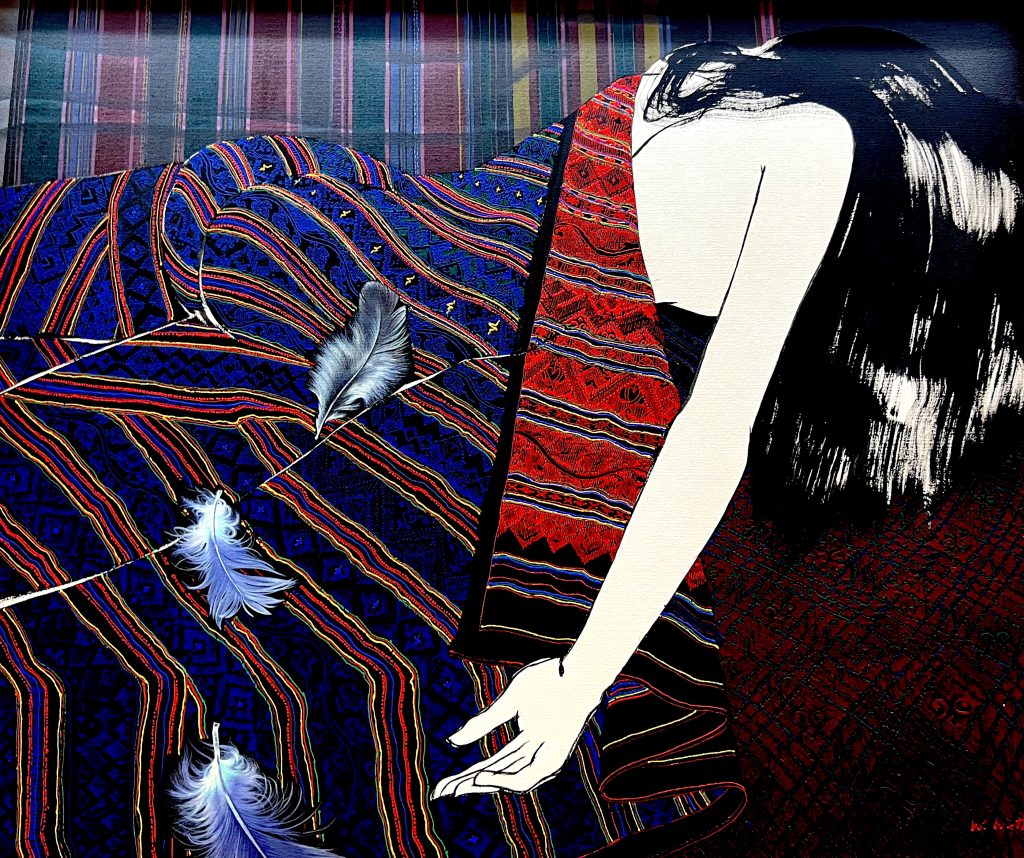
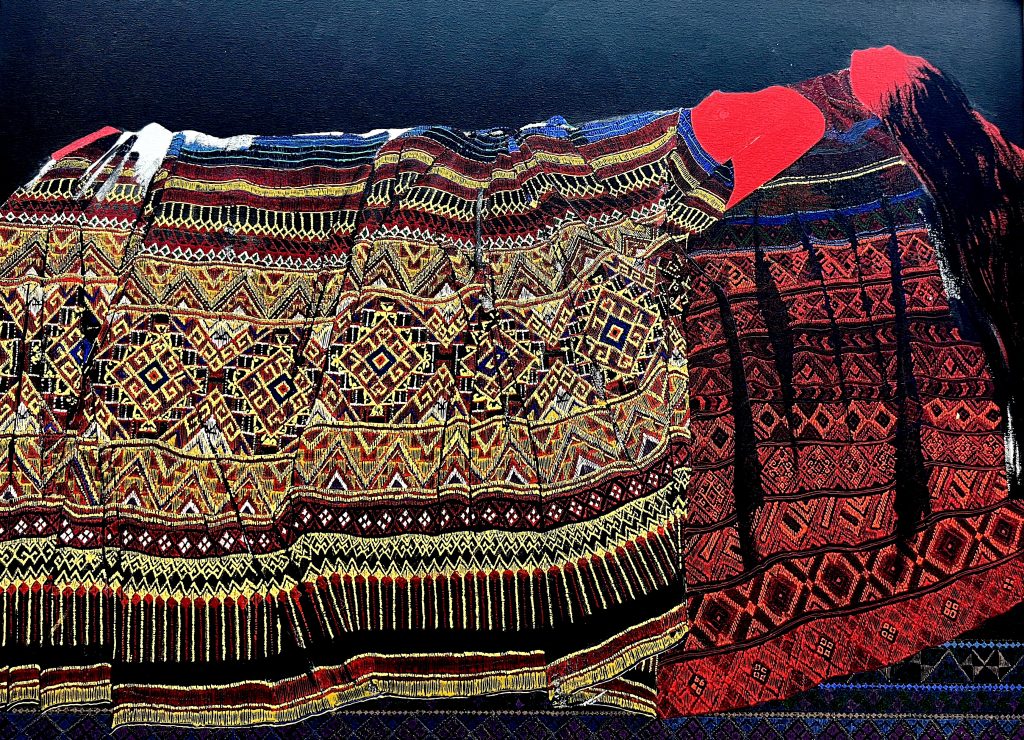
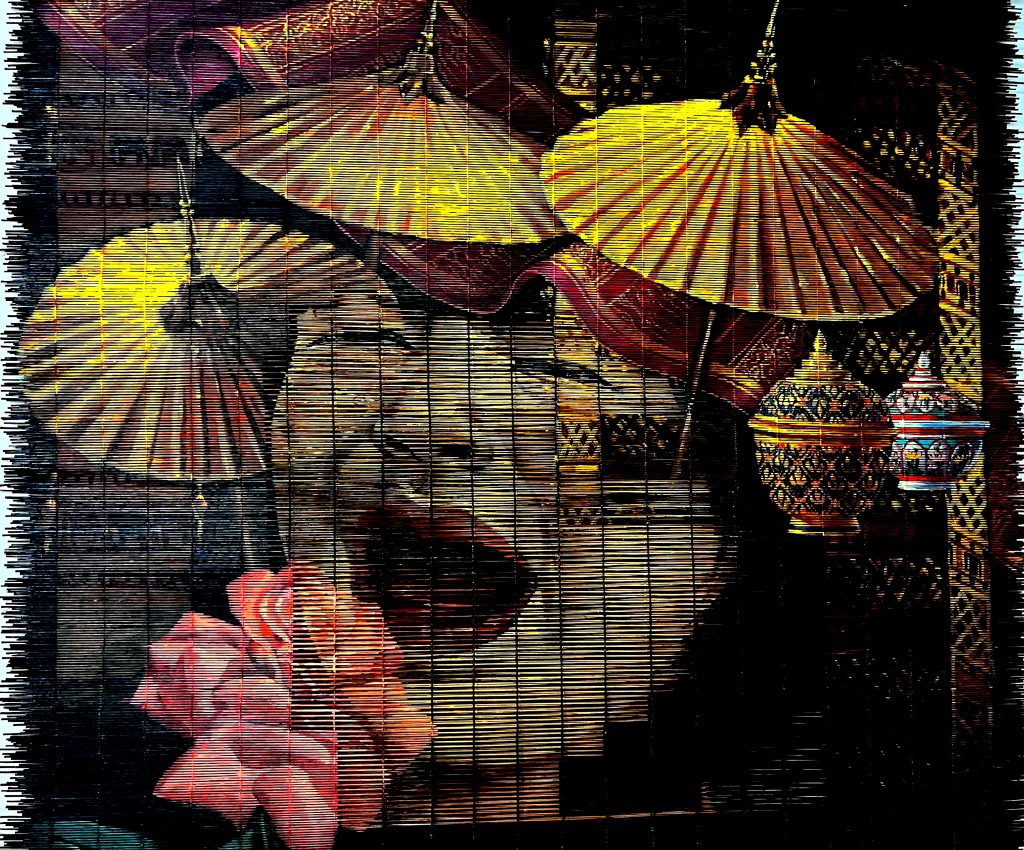
BURMA PRISONS // ” THE WORST SITUATION OF ALL KNOWN TIMES” //
Since the coup, the Assistance Association for Political Prisoners – Burma (AAPP), has documented the killing of 4,500 people by the authorities, including 1,547 in detention, 705 women and 505 children. At least 26,000 people, including 5,150 women and 706 children (see graph) have been arrested, and almost 20,000 are still in prison.
The association, declared illegal by the junta, operates from Mae Sot, one of the border towns in western Thailand where generations of Burmese activists have found refuge in every wave of repression that has marked the political history of their country, particularly since the democratic uprising of August 1988.
A representative of the association notes that “these numbers have never been so high, and they’re increasing every day. When we founded our organization in 2000, there were a maximum of 3,000 political prisoners, 5% of whom were women. Today, anyone who supports the pro-democracy movement in any way is considered a terrorist. If you click “Like” on a Facebook post deemed to criticize the military, you can be arrested. They take whole families and put their homes under seal”
In a report from January 2024, Myanmar Witness documented satellite expansions in 46% of the 59 prisons (53 ‘confirmed’ and 6 ‘unconfirmed’) whose locations were mapped by the NGO, a project run by the Centre for Information Resilience. According to the AAPP, those six ‘unconfirmed‘ prisons are buildings that were originally used as prisons or interrogation centers.
A sizable number of Myanmar people enjoyed a brief period of respite when the NLD led by Aung San Suu Kyi won a massive victory in the 2015 elections. But the military establishment never transferred full power to the civilian government because “the Constitution, drafted by the former junta and adopted by a sham plebiscite in 2008, ensures that the most powerful ministries – Defense, Home Affairs and Border Affairs – all remain under the control of the Burmese military, as do its diverse and lucrative business interests.”
The price of this elite compromise is being paid by the people today, with the departments in charge of the police force and prisons being placed under the Ministry of Home Affairs. “These are soldiers who torture during interrogation, even women, including in police stations. In the prisons, doctors have been replaced by military personnel”, testifies Naw May.
In The Flow of Injustice (July 2023) U Tate Naing, AAPP Secretary said “What we are facing today is the worst situation in all known times. In the past, most prisoners at least had a certain degree of safety from death, though there were always also people who were tortured to death during interrogation. However, nowadays the junta frequently takes political prisoners from their cells, to torture, severely injure, and kill. Despite imprisonment, political prisoners must live with concern of when they will get away from brutal torture. The law has completely ceased to function. There is an urgent need for the world to not sit idly at these extrajudicial acts, and to take immediate action instead”
All paintings from Wattana Art Gallery, Chiang Mai © Wattna Wattanapun